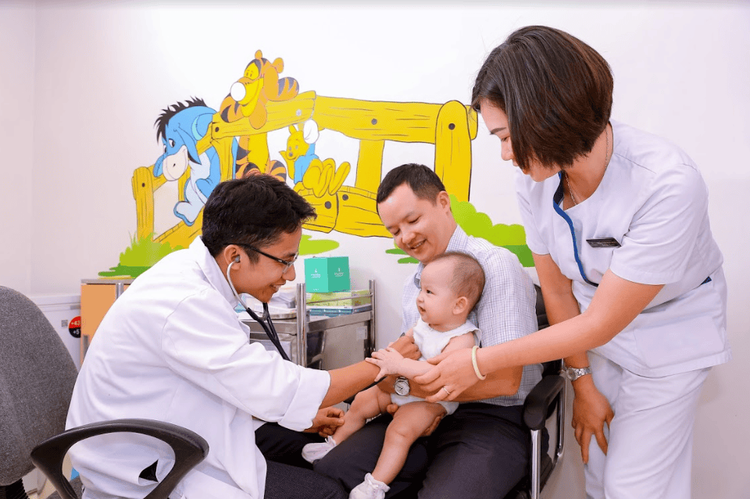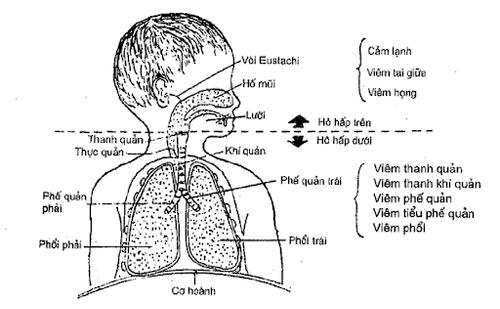This is an automatically translated article.
Periodic health check for a newborn is essential in the process of taking care of a child. The schedule of health check-ups for newborns will be developed based on consensus between the doctor and the child's parents. So for a 2-month-old baby, what is the health checklist for babies?
1. What will the doctor do when examining a 2-month-old baby?
1.1 Weighing and measuring your baby Your baby will need to be completely undressed before weighing. The doctor will weigh the baby, measure the length and circumference of the head, and plot the numbers on the growth chart.
Growth chart allows to compare the child's biometric parameters with other children of the same age and track the child's development over time. But a child's weight and height at the 5th or 95th percentile doesn't really matter, as long as the child's growth rate is steady from one visit to the next. .
1.2 Complete physical examination Heart and lungs: Use a stethoscope to listen to detect any abnormal heart rhythms or breathing problems. Eyes: Check for signs of congenital eye diseases and other vision-related problems. Your doctor may also check your lacrimal gland for blocked tear ducts. Ears: Look for signs of infection and observe how your baby responds to sounds.

Khám sức khỏe định kỳ cho trẻ sơ sinh là việc làm cần thiết trong quá trình chăm sóc trẻ
Mouth: Look for signs of thrush (a fungal infection of the mouth) along with other abnormalities. Head: Check the anterior and posterior fontanelles and shape of the baby's head. Also, check to see if the baby's head is growing flat. 2 months of age is a good time to start monitoring. Whole body: Check the baby's reflexes and muscle tone, and check the skin and mucous membranes for signs of rash. Abdomen: Gently press on the abdomen to check for a hernia or any enlarged organs. Genitals: Open the baby's diaper and check for signs of infection. Hips and Legs: Move your baby's legs around to look for problems with the hip joint. 1.3 Child immunizations Children will receive pneumococcal , DTaP, Hib, and polio vaccinations (in two shots) and rotavirus vaccine given orally. Your baby will also get a second dose of hepatitis B vaccine if he doesn't get it at the 1-month-old checkup.
In addition, the doctor will talk to the parents and address any other concerns about the child's health.
2. Questions the doctor may ask when examining a 2-month-old baby
How do babies sleep? At this age, many children begin to sleep a little longer at night - perhaps even a 4 or 5 hour nap - and will sleep less during the day. On average, parents still report a child's sleep time from 14 to 16 hours a day.

Trẻ 2 tháng tuổi ngủ trung bình từ 14 đến 16 giờ mỗi ngày

Mỉm cười là một trong những hành vi giao tiếp xã hội sớm nhất của trẻ
Pediatrics Department at Vinmec International General Hospital, periodic health check-ups for children is a routine activity. The examination process is carried out by a team of specialists from Faculty of Pediatrics combined with a system of modern technological equipment to help doctors early detect abnormal conditions in children and take timely measures. such as: Successful emergency treatment of a 40-day-old congenital heart or some possible postpartum complications. At the same time, the doctor can adjust the most suitable nutrition for the baby to ensure the comprehensive development.
Please dial HOTLINE for more information or register for an appointment HERE. Download MyVinmec app to make appointments faster and to manage your bookings easily.
SEE MORE
Guess the baby's intentions by the baby's cry Do babies sleep little to worry about? How to help babies sleep soundly













